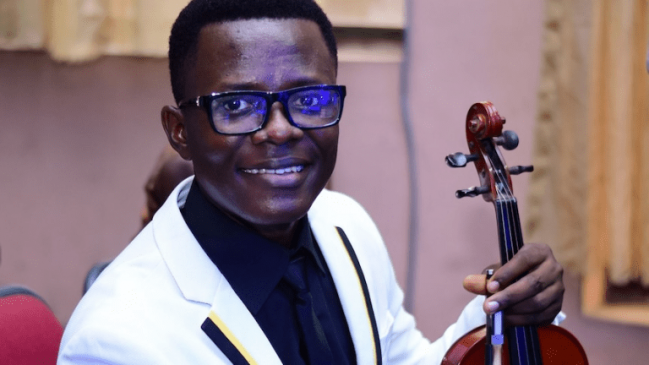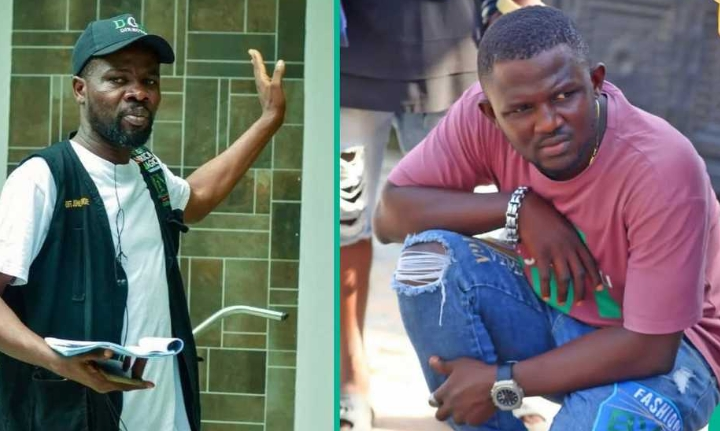Chidozie Elvis Chidi-Ezeama, a 34-year-old Nigerian, has plenty of strings to his bow. Apart from being an accomplished violinist, he is also a brilliant medical doctor. He recently proved his brilliance in the medical field when he took on a mission to invent a prototype detection device for Malaria.
EARLY DAYS IN AUSTRALIA
After completing his medical training in Nigeria, Chidi-Ezeama moved to Adelaide, the capital city of South Australia, in 2019 to continue his studies in biomedical engineering at Flinders University.
Like his famous namesake Elvis Presley, the American rock ‘n’ roll legend who had an early affinity for gospel music, Chidi-Ezeama is an experienced church musician who plays at the Seventh-day Adventist Church at Brighton.
In early 2020, his church connections led him to Kangaroo Island where, shortly after his arrival in Australia, he had volunteered to help communities and displaced persons during a wildfire crisis.
“I was just very new to Australia and they said, ‘Hey, the bushfire’s just happened and some farmers have just lost their farms’ and so I was happy to go there,” Chidi-Ezeama said in his interview with ABC Radio.
“Sometimes it could mean passing them a food hamper, it could mean helping them with accommodation.”
THE BATTLE WITH MALARIA
According to the most recent global malaria report by the World Health Organization (WHO), Nigeria accounted for 27 per cent of the 241 million total cases of malaria in 2020, and almost 32 per cent of the 627,000 death cases in the world.
To Chidi-Ezeama, malaria was one of the biggest medical challenges confronting Nigeria.
To combat this challenge, Chidi-Ezeama decided to look for ways of reducing the numbers through his master’s thesis.
“If you don’t detect the malaria effectively, then giving a medication is as useless as not giving one, because there are many strains of malaria and you have to know which one is which,” Chidi-Ezeama said.

“I was very sure that that was exactly what I wanted to study.
“Flinders University had a program for biomedical engineering masters, and more so for people who weren’t exactly engineers, so they had a pathway.”
Chidi-Ezeama also narrated his ordeals as a doctor practicing in Nigeria.
“The reason I got into med school and did the whole eight years of study was because I wanted to help people, but then, when I started, practicing as a doctor was really a bit frustrating for me,” he said.
“The people who need this help are poor and they can’t afford it, because they just can’t pay for it, so you just watch them die gradually.”
THE PROTOTYPE
Chidi-Ezeama has been working on a small prototype detection device that could serve as a more affordable alternative to existing expensive machines.
“There’s one we found in the market that is up to $25,000,” he said.
“Nobody would ever be able to buy that in Nigeria or any other developing country in Africa. So, the goal was to design one that’s cheap to produce, that can be easily maintained and can be used in rural Africa.
“That’s why the 3D printing came in, because 3D printing is really cheap.”
He would not only love to develop his prototype, but make it as accessible as possible.
“We have proof of concept,” he said.
“If I could make them, it’d obviously be very affordable. It’s not rocket science.”
‘RARE BLEND OF SKILLS’
In recognition of his efforts, Chidi-Ezeama was singled out for special honours by StudyAdelaide, an international student support agency of the government of South Australia.

He was named the winner in the postgraduate category at the state’s 2022 International Student Awards.
The formal citation praised his “thirst to learn”, his “positive outlook and inner drive”, and his “rare blend of medical and engineering skills”.
“Elvis has many opportunities to continue to learn and get real industry experience once he graduates, leading to him achieving his goal to make medical devices affordable and available to all people,” StudyAdelaide said.
Source: ( Adebola Adewara ) Foundation for Investigative Journalism




